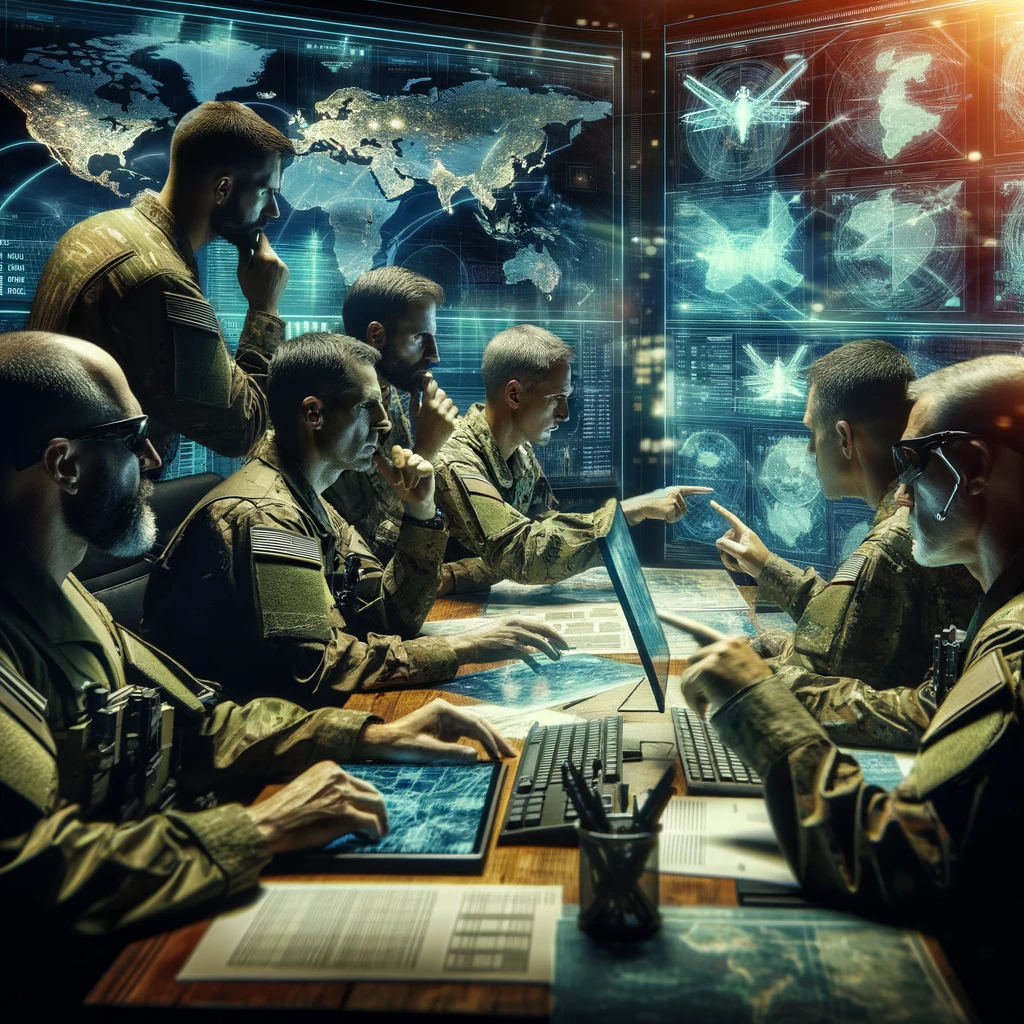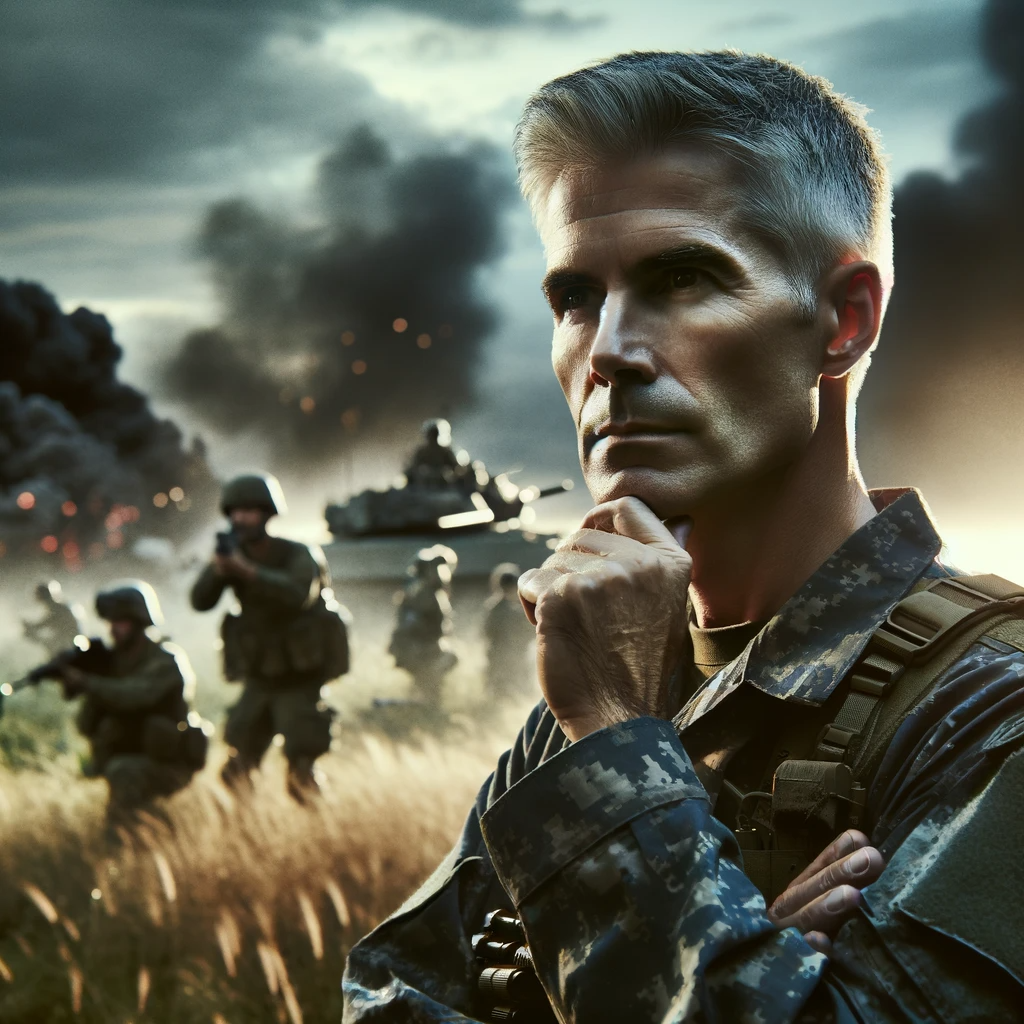Mind Over Matter: The Psychological Preparation of Special Forces Units
Mind Over Matter: The Psychological Preparation of Special Forces Units

The Essence of Psychological Resilience in Special Forces Training
In the world of Special Forces training, psychological resilience stands as a cornerstone for success. These elite units operate in high-stress environments where split-second decisions and unwavering determination can mean the difference between success and failure, life and death. While physical prowess is undoubtedly crucial, it is the mental fortitude of these soldiers that truly sets them apart.
Psychological resilience within Special Forces training goes beyond simple mental toughness; it embodies a holistic approach to mental preparedness. It encompasses a range of psychological qualities, including emotional stability, adaptability, stress management, and cognitive flexibility. Special Forces soldiers are trained to not only endure the rigors of their missions but also to thrive in the face of adversity.
Drawing from various disciplines such as sports psychology, cognitive-behavioral therapy, and mindfulness practices, Special Forces training programs aim to cultivate a resilient mindset in their operatives. Techniques like visualization, goal setting, positive self-talk, and mindfulness meditation are integrated into their training regimen to enhance mental resilience and fortitude.
One of the key objectives of building psychological resilience in Special Forces soldiers is to mitigate the impact of trauma and the stressors inherent in their line of work. By arming these operatives with the tools to navigate challenging situations with composure and clarity of mind, training programs seek to reduce the incidence of mental health issues such as post-traumatic stress disorder (PTSD) and promote overall well-being among the troops.

The Comprehensive Soldier and Family Fitness (CSF2) program in the U.S. Army and similar initiatives in other Special Forces units worldwide attest to the growing recognition of the importance of psychological resilience in military operations. By prioritizing the mental well-being and resilience of their soldiers, these elite units not only enhance their operational effectiveness but also invest in the long-term health and performance of their personnel.
In essence, the cultivation of psychological resilience in Special Forces training is not just a strategy for enhancing performance; it is a fundamental pillar that sustains the mental health and operational effectiveness of these elite soldiers in the face of the most demanding challenges imaginable.
Strategic Cognitive Skills for Operational Excellence
The development of strategic cognitive skills for operational excellence represents a cornerstone in the training and preparation of Special Forces personnel. These skills not only enhance soldiers’ ability to effectively navigate complex and volatile situations but also enable them to make well-informed decisions under pressure. The interplay between cognitive readiness and operational success underscores the importance of equipping troops with the mental acuity necessary to excel in dynamic and demanding environments.
A critical component of cultivating strategic cognitive skills lies in the utilization of realistic training scenarios that mimic the challenges encountered in actual operations. By exposing soldiers to scenarios that mirror the intricacies of combat situations, training programs can foster adaptive thinking, rapid problem-solving, and quick decision-making capabilities. Through relentless practice and exposure to diverse challenges, soldiers can refine their cognitive processes, thereby enhancing their overall performance on the battlefield.

In recent years, the integration of advanced technologies such as simulation tools and virtual reality platforms has revolutionized the landscape of cognitive training for Special Forces personnel. These innovative tools provide a multidimensional learning experience, allowing soldiers to immerse themselves in realistic and high-pressure scenarios that closely resemble real-world situations. By leveraging the power of virtual environments, soldiers can sharpen their strategic thinking, enhance their situational awareness, and fine-tune their decision-making skills in a controlled and safe setting.
Furthermore, the incorporation of artificial intelligence (AI) into cognitive training programs adds a layer of sophistication and personalization to the learning process. AI-enabled training systems can dynamically adapt to the performance and skill levels of individual soldiers, tailoring the challenges presented to each participant based on their strengths and weaknesses. This adaptive approach not only optimizes the effectiveness of training but also ensures that soldiers receive targeted development opportunities to bolster their cognitive capabilities.
Overall, the strategic focus on enhancing cognitive skills for operational excellence underscores the commitment of Special Forces organizations to preparing their personnel for the rigors of modern warfare. By embracing innovative training methodologies and leveraging advanced technologies, these elite units stand poised to cultivate a new generation of soldiers equipped with the cognitive prowess necessary to thrive in complex and unpredictable operational environments.
Emotional Regulation and Team Cohesion in Special Forces Operations

In the high-stakes environment of Special Forces operations, where split-second decisions can mean the difference between success and failure, emotional regulation stands as a cornerstone of operational effectiveness. Soldiers in these elite units undergo rigorous training not just in physical prowess and combat skills, but also in the mastery of their own emotions. Techniques such as controlled breathing, visualization, and mindfulness practices form a crucial part of their preparatory regimen. These methods are not just about staying calm under pressure but also about channeling emotions in a way that enhances situational awareness and decision-making.
By cultivating emotional regulation skills, soldiers can navigate the intense stress, fear, and adrenaline of combat environments with a level head. This ability not only improves their individual performance but also contributes significantly to the overall cohesiveness of the team. When each team member can manage their emotions effectively, it paves the way for clearer communication, better coordination, and swift adaptation to changing circumstances on the battlefield.
Team cohesion, the glue that holds Special Forces units together, is another critical aspect that enhances their operational effectiveness. Beyond just working together, these teams are a closely-knit brotherhood, bound by shared experiences, trust, and a deep sense of camaraderie. Building this cohesion involves a myriad of activities, from intense physical training sessions to debriefings after missions, where soldiers reflect on their performance and learn from each other’s strengths and weaknesses.
Studies have shown that robust team cohesion not only boosts morale and camaraderie but also serves as a buffer against the psychological toll of repeated exposure to high-risk situations. The support and solidarity within the team create a sense of belonging and mutual reliance that is invaluable in the crucible of combat. Additionally, cohesive teams are more adept at problem-solving, adapting to unforeseen challenges, and maintaining a collective spirit even in the face of adversity.
In essence, emotional regulation and team cohesion are not just buzzwords in the realm of Special Forces operations; they are the pillars upon which successful missions are built. By honing these skills, soldiers not only elevate their individual performance but also forge bonds that can withstand the most testing of circumstances, ensuring that when the call to action comes, they stand not as individuals but as a unified force, ready to overcome whatever challenges lay ahead.
FAQs
- What is psychological resilience training? Psychological resilience training involves techniques and exercises designed to enhance mental toughness, emotional stability, and cognitive flexibility, enabling individuals to cope better with stress and adversity.
- How do Special Forces units train for cognitive readiness? Special Forces units employ scenario-based training exercises, advanced simulation technologies, and VR platforms to improve situational awareness, decision-making skills, and adaptability.
- Can emotional regulation techniques improve performance? Yes, techniques such as controlled breathing and mindfulness meditation can help manage stress and emotions, leading to improved focus, decision-making, and team cohesion.
- What role does team cohesion play in Special Forces? Team cohesion is crucial for operational effectiveness, as it fosters communication, mutual support, and collective problem-solving, enhancing the unit’s ability to respond cohesively to threats.
- Are there programs designed specifically for the psychological preparation of military personnel? Yes, programs like the U.S. Army’s Comprehensive Soldier and Family Fitness (CSF2) and the British SAS’s Mind Gym are designed to enhance the psychological resilience and performance of military personnel.

For More Information:
- Comprehensive Soldier and Family Fitness (CSF2) Program: A U.S. Army initiative focused on building psychological resilience among soldiers and their families.
- National Center for PTSD: Offers resources and research on PTSD and other mental health issues affecting veterans and military personnel.
- Mind Tools for Military: Provides resources and tools for enhancing mental fitness and resilience in military contexts.
- Warrior Mind Coach: Offers coaching and resources aimed at improving mental toughness and performance in military and law enforcement personnel.
- Journal of Military Psychology: Publishes research articles on psychological aspects of military training, performance, and health.
References
Cornum, R., Matthews, M. D., & Seligman, M. E. P. (2011). Comprehensive soldier fitness: Building resilience in a challenging institutional context. American Psychologist, 66(1), 4–9.
Fletcher, J. D., & Wind, A. P. (2013). Cognitive readiness. Human Factors: The Journal of the Human Factors and Ergonomics Society, 55(3), 461–470.
Oliver, L. W., Harman, J., Hoover, E., Hayes, S. M., & Pandhi, N. A. (1999). A quantitative integration of the military cohesion literature. Military Psychology, 11(1), 57–83.
Dr. Jerry D. Smith Jr. is a clinical psychologist and empathic expert specializing in human empowerment and leadership.
More from Dr. Jerry Don Smith Jr. and Operational & Defense Psychology Review






